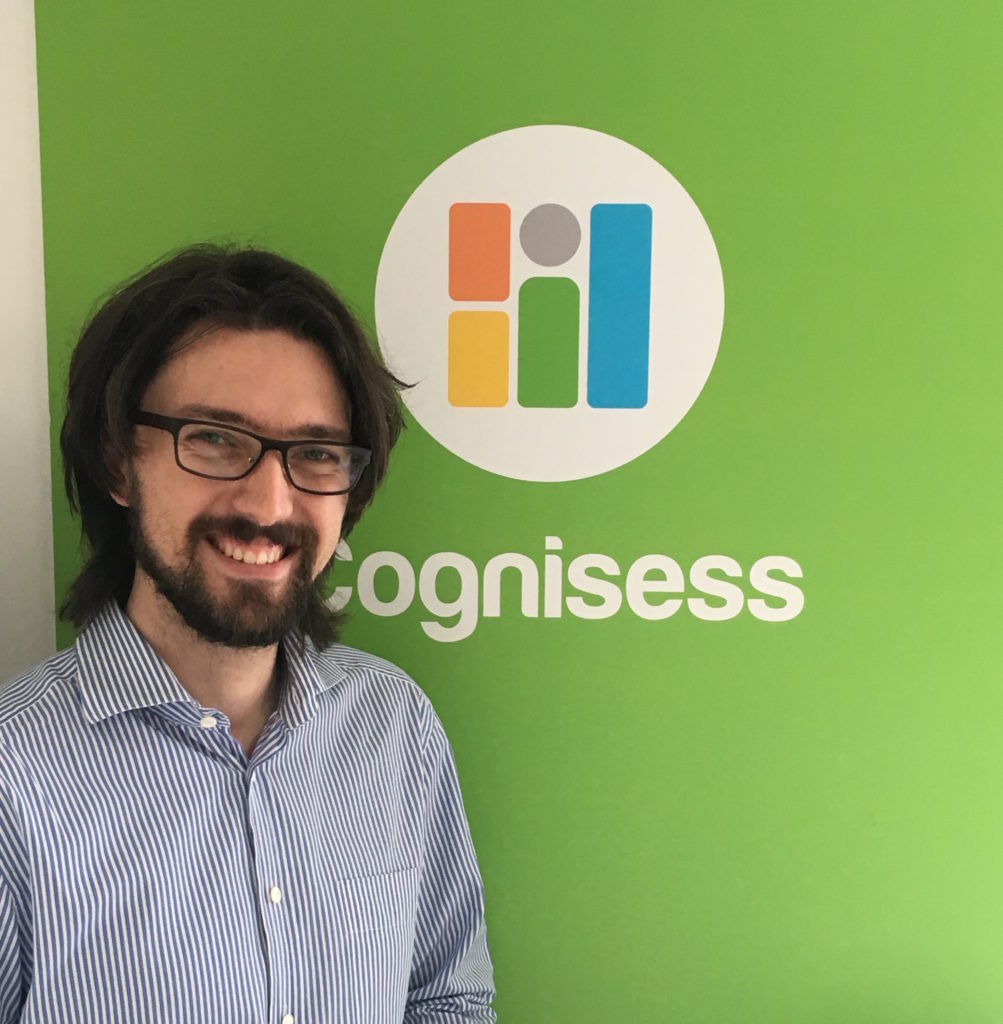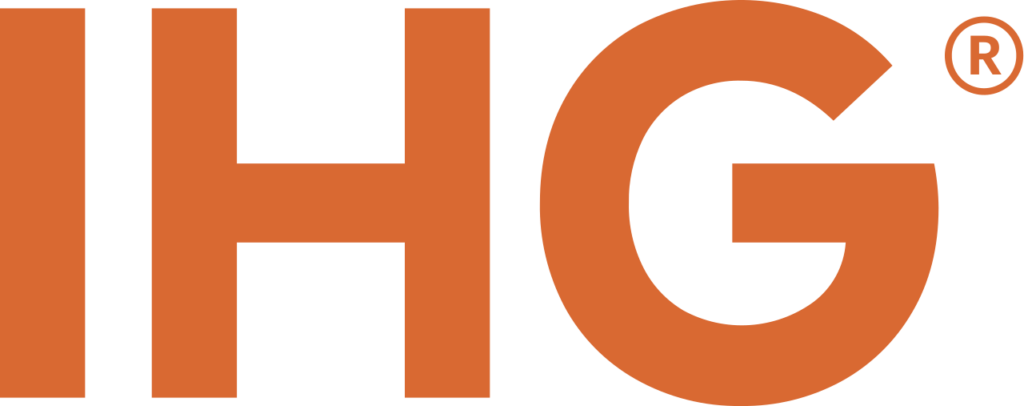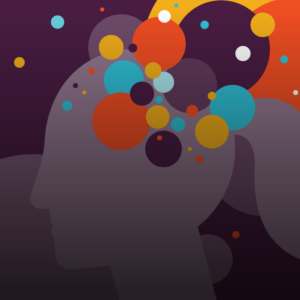Cognisess’ Chief Scientific Officer, Dr Boris Altemeyer, explores the opportunities and challenges for businesses looking towards people analytics as a driver for HR transformation. He uses added insight from our recent case study with hotel giant IHG who recently applied AI in HR with Cognisess.
In your opinion, what element of the IHG case study was particularly successful?
“On the second year of using Cognisess Pro for their Future Leaders fast-track recruitment programme, we used predictive analytics to screen the potential of candidates. Their cognitive and emotional intelligence scores assessed how an individual would perform in the assessment process. This avoided the need for applicants to undertake the usual case study module on day 2 of the assessment centre. This measure proved to be over 95% accurate in anticipating their rating based on assessor feedback. IHG could view the candidate’s predicted results without the applicants physically completing the required business case study. This meant IHG could eliminate the second day of the assessment centre without losing data to feed into the decision process, which resulted in a 50% reduction in assessment centre time and cost. This was a great example of doing something which was an immediate ‘quick win’.”
Why is the IHG Future Leaders programme so successful and can this success with people analytics be replicated with every company?
“First and foremost using people analytics helped IHG internally in terms of their own efficiency and effectiveness. They can now be confident about employing the right people and spend more of their valuable time with the right candidate, rather than spending that time on applicants that won’t go very far. These people may be brilliant people in their own right – but not for this particular role. This process cuts out a lot of the time wasting and guessing.
IHG was able to ‘white label’ the process using our platform, which meant everything looked and felt like IHG – allowing them to stay very true to their employer brand. This was one of the successful elements of the project. Candidates didn’t feel like they were in a third party system, as it’s all integrated. We got very good feedback from the candidates, with 97% of the applicants rating the process as positive even if they weren’t successful. The candidates feel appreciated because IHG wants to discover their potential, instead of assessing whether they can write a convincing CV – which in most cases just shows how good you are at writing CV’s.
A project isn’t going to be successful if an unsuccessful candidate has a bad experience – it should be a great experience whether they are successful or not. A bad applicant experience isn’t just a lost employee, but a lost customer. It can ultimately damage the employer’s brand.
I believe this approach can be replicated for other companies. Many of our clients use the Cognisess platform in different ways. Because businesses know their target audience well, Cognisess Pro can adjust the application process to suit the type of candidate who applies. For example, if the target applicant audience is likely to be time poor or not very tech savvy, the assessment process can be adjusted to work on their terms. This generates a positive buy-in and participation, resulting in high completion levels from the start and a positive experience for all. But a positive experience at IHG isn’t the same as AB InBev or Vauxhall, it needs to be congruent with what is expected of the brand and the nature of the role. The days of ‘one size fits all’ recruitment is over.”
It seems in order to find IHG’s ideal group of people for the Future Leaders programme they needed to find out more about their existing current cohort – how is this an unexpected bonus for companies like IHG?
“It is a very unexpected and welcome bonus. It is to do with the data agility; the application of predictive analytics, the number of different data points, the accuracy of prediction and where we build a benchmark from.
Clients are often surprised that we want to benchmark their existing people when looking for new people, which means we need to access more data from them than they would usually expect. We could take an educated guess about what ‘a good performer’ looks like in each organisation – but it’s never going to be as accurate as using actual data sets from existing teams and applying predictive analytics to those.
Additionally, that data doesn’t just need to be used solely for the benchmarking process. What some of our clients realise is they can use this information for personal development plans. They can identify that an employee could be a fantastic match for a promotion, perhaps not within their direct line of work but in another function – perhaps in sales or marketing. HR can rejig a career plan to ensure an employee makes the most out of their natural abilities. This is a real bonus for companies managing their talent pools and can be undertaken with not that much data.”
How easy was it for IHG to learn and operate Cognisess Pro?
“Our predictive analytics platform is easy to operate. Administrators can quickly understand how to use the analytics dashboard or manage user registration. We have deliberately designed the platform so administrators don’t need a statistics degree to use it.
For IHG we built some bespoke job profilers based on their current high performing employees, which allows recruiters to measure how good an applicant would be in a specific role. IHG’s administrators could easily analyse how good a candidate was compared to the 600 other applicants.
The more challenging aspect is understanding the data model that is behind Cognisess Pro. A company doesn’t need to understand this to use the platform and produce immediate results. However, once a company does start down the path of people analytics – they want to know more. We are able to provide training sessions if individuals within HR want to develop their data and analytical skills. Essentially if you really want to understand people, then understanding data is a necessary skill which HR will need to develop in the future. It also helps to have large datasets and applicant pools of IHG’s size and scale. AI and machine learning feast on bigger data sets, with more data they can make more informed and complete insights.”
How did it support decision making for IHG?
“Although IHG had a developed assessment framework prior to using Cognisess Pro, it was very time intensive. The feedback we got from IHG’s HR managers was that Cognisess Pro saved them time. Instead of taking several hours out of a busy HR director’s week to interview and individually test candidates, they were able to rely on Cognisess Pro’s video interview feature. This allows candidates to record their video interviews remotely whilst Deep LearnTM, Cognisess’ analytics engine, scores them.
It made the overall process a lot smoother. At the end of each IHG assessment centre day, the assessors have 1 hour to decide which candidates to give offers to. After they’d decided amongst themselves, they bring the candidate’s Cognisess Pro results up on the screen. This objective data shows them how they fared throughout the whole process in terms of their video scores, personality scores, emotional wellbeing and cognitive scores. This allows the assessors to feel confident that what they saw matched the framework, the data and analytics backs them up. We never use this data to prompt assessors because we don’t want to suggest any self-fulfilling prophecy of ‘this is what the computer said – you must therefore agree.’ It works best when a person comes to their own conclusion and then looks at the data to scientifically validate their opinion.
This is incredibly important for companies like IHG to ensure they are operating in a way which is transparent, fair and objective to eliminate the likelihood of any bias creeping into their selection processes or decision making. In the future all companies may need to demonstrate their talent decisions are compliant with equal opportunities, anti-discrimination policies and law. I believe that Cognisess is well ahead of that curve and can support companies to achieve those goals today.”
For more insight, download our recent case study with global hotel giant IHG.






